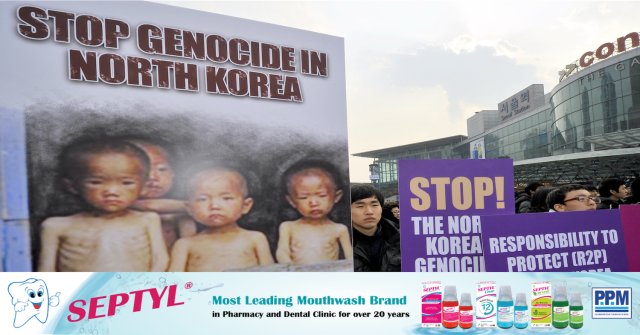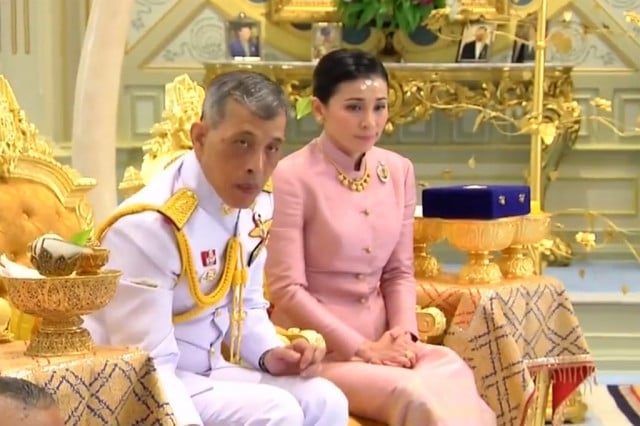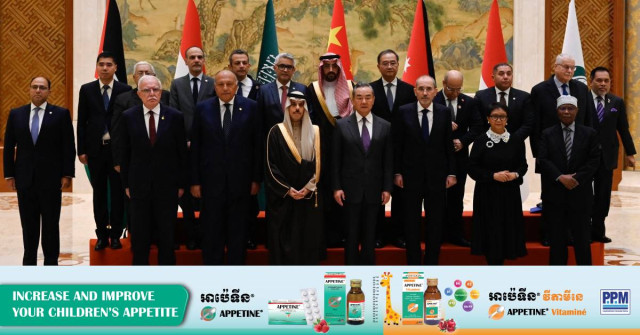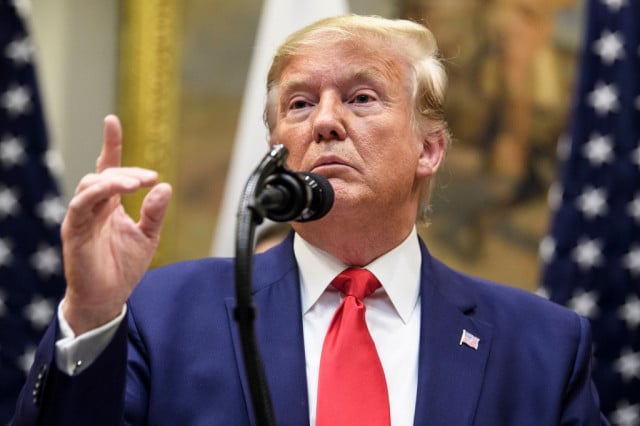Addressing the North Korean Human Rights Crisis: Perspectives from Cambodia's Inaugural Seminar

- By So Channtha
- January 1, 2024 6:14 PM
North Korea has one of the worst human rights records in the world. The dictatorial regime that Kim Jong Un leads controls every aspect of the lives of its citizens. As a result, fundamental freedoms and rights are severely restricted. According to the United Nations report in 2022, arbitrary detention, torture, forced labor, and public executions are routinely used to maintain control and suppress dissent.
Access to outside information is heavily censored, with North Koreans having no internet access or exposure to foreign media. Freedom of expression, religion, and movement are nonexistent for ordinary citizens. One thing that should be brought to attention is the fact that violations of human rights are still widespread, severe, and systematic.
It is incumbent upon the international community to tackle the human rights issue in North Korea. Since 2003, the UN General Assembly and UN Human Rights Council have consistently passed a yearly resolution denouncing the country's human rights performance. The resolution adopted on December 18, 2014, with a majority vote of 123-16 and 51 abstentions, called for the regime in Pyongyang to cease its "systematic, widespread, and severe infringements of human rights," encompassing acts like public executions and arbitrary detentions. However, concrete action by member states is also needed. Countries with diplomatic relations with North Korea must use their bilateral channels to directly pressure the regime in Pyongyang to improve its human rights practices. Those states should link economic and political engagement with verifiable progress on human rights. Aid provided to North Korea should be carefully targeted to benefit citizens directly.
The dire human rights conditions in North Korea should be a significant concern for the international community. The member states of the UN must uphold the resolutions. As a member of that global community, and even though Cambodia's human rights record is still under criticism, Cambodia is responsible for expressing its voice and taking action to pressure North Korea to improve human rights. While its influence may be limited compared to more considerable powers, joining with other nations to condemn North Korea's abuses universally is vital. Diplomatically, Cambodia should fully implement UN sanctions on North Korea imposed for human rights violations. While avoiding confrontation, Cambodia can make it clear that relations and aid are tied to improvements of fundamental freedoms and ending abuses against North Korean citizens. Historically, Cambodia has been reluctant to sanction or isolate other countries regarding internal issues, but global human rights are a case where public condemnation and pressure are necessary.
More importantly, Cambodia has a unique opportunity to promote human rights and democratic values in North Korea, given the two countries' diplomatic ties and Cambodia's history of transitioning from authoritarian rule. Since Cambodia reopened its embassy in Pyongyang in 2014, it has developed a closer relationship with North Korea. While some have raised concerns about military cooperation and sanctions evasion, Cambodia should leverage this relationship to push for human rights improvements.
In addition, as a nation suffering immense tragedy under the brutal Khmer Rouge dictatorship, Cambodia understands the North Korean people's plight better than others. Having experienced oppression and the denial of fundamental rights and freedoms, Cambodia can speak with North Korean authorities on the importance of human rights and democratic governance. Since its transition, Cambodia has made progress in reconciliation, poverty reduction, and promoting rights, though its democracy remains flawed. Through direct diplomatic engagement, Cambodia should urge North Korea to open politically, initiate reforms, and respect fundamental civil liberties and human rights. Drawing on its transition, Cambodia can explain how greater openness allowed its people to begin healing from past atrocities. It can recommend North Korean policies that stimulate economic growth while distributing benefits more equitably.
In supporting the role of Cambodia in addressing the North Korean human rights crisis, a first-ever seminar on the North Korean human rights crisis was held in Phnom Penh on December 22, 2023. A group of scholars and NGOs organized the workshop, and many students from various universities students in Cambodia also took part. In the seminar, they discussed the grave human rights violations in North Korea and the ways to save North Korea from oppression. Participants in the workshop suggested and recommended that Cambodia uphold the UN resolutions to protect North Korean citizens from oppression. The seminar also suggested that Cambodia should use diplomatic relations with North Korea to open space and promote human rights with economic and social development from international communities. Moreover, it is also urged that the international community should file a complaint to the International Criminal Court (ICC) against dictator Kim Jon Un, who committed a crime against humanity. This seminar is scheduled to expand the discussion of North Korean issues by holding regular seminars from 2024 onward.
Overall, the global community has a responsibility to address the severe human rights crisis in North Korea. While the UN has consistently passed resolutions condemning the regime's actions, concrete action from member states is also necessary. Despite its human rights record, Cambodia should use diplomatic ties to influence the nation to improve human rights. Cambodia's history of transitioning from genocidal rule and its understanding of oppression makes it well-suited to advocate for change. The recent seminar held in Cambodia on the North Korean human rights crisis is a positive step, and further discussions and actions should be taken to address this ongoing issue. The international community must prioritize human rights and take concrete steps to ensure that a positive change can take place in North Korea. The world must stand united in its resolve to end human rights abuses and work towards a future where every individual's rights are respected and protected in North Korea.
So Channtha is a lecturer on politics and international relations at the University of Cambodia.















